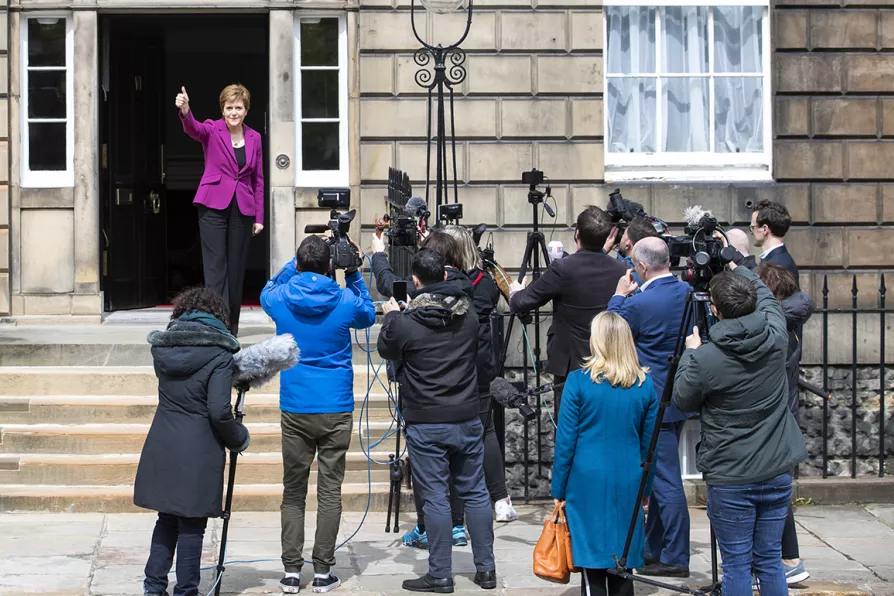Once the bustling heart of Christian pilgrimage, Bethlehem now faces shuttered hotels, empty streets and a shrinking Christian community, while Israel’s assault on Gaza and the tightening grip of occupation destroy hopes of peace at the birthplace of Christ, writes Father GEOFF BOTTOMS

 Scottish First Minister and SNP leader Nicola Sturgeon on the steps outside Bute House in Edinburgh after the SNP won a fourth victory in the Scottish Parliament election
Scottish First Minister and SNP leader Nicola Sturgeon on the steps outside Bute House in Edinburgh after the SNP won a fourth victory in the Scottish Parliament election
WRITING in mid noughties Professor David Miller made the point that “Scotland is governed not simply via the institutions of formal governance… Scotland is also run by political and economic decision-makers, only some of whom are based in Scotland.
“Other centres of decision making are obviously London and Brussels, the Headquarters of the World Trade Organisation, IMF and World Bank and the boardrooms of the transnational corporations, including those which have no interest or base in Scotland (even a negative decision not to site a factory or not to launch a product in Scotland is consequential).”
Arguably a Scottish election of the sort we have just had might have provided an opportunity to explore who owns and runs Scotland and what that ownership means for Scottish society and its industry and services and more importantly still, its democracy.

As bus builder Alexander Dennis threatens Falkirk closure and Grangemouth faces ruthless shutdown by tax exile Jim Ratcliffe, RICHARD LEONARD MSP warns that global corporations must be resisted by a bold industrial strategy based on public ownership

Our groundbreaking report reveals how private rail companies are bleeding millions from public coffers through exploitative leasing practices — but we have the solutions, writes Aslef Scottish organiser KEVIN LINDSAY

That Scotland was an active participant and beneficiary of colonialism and slavery is not a question of blame games and guilt peddling, but a crucial fact assessing the class nature of the questions of devolution and independence, writes VINCE MILLS











